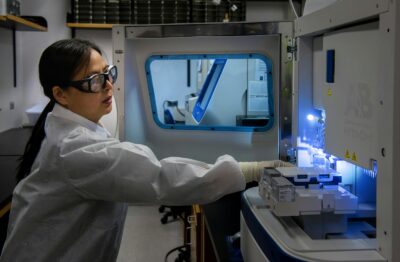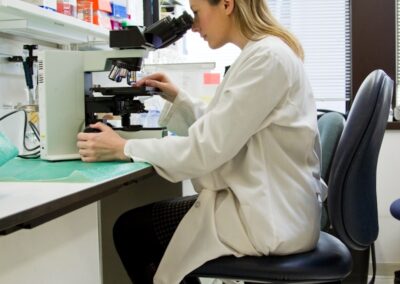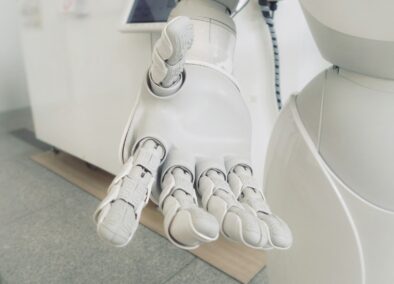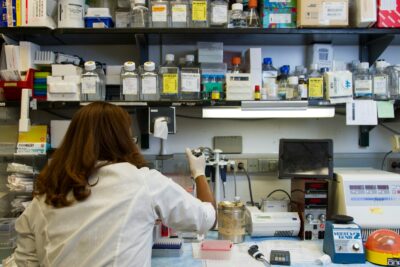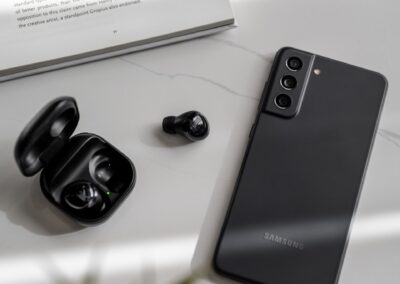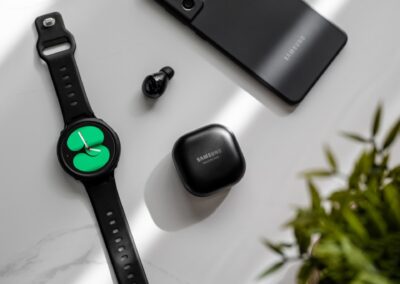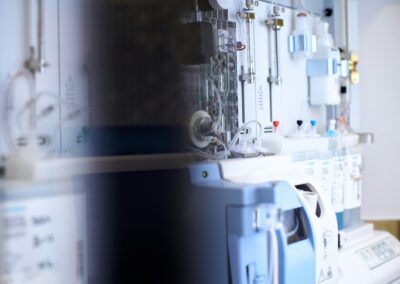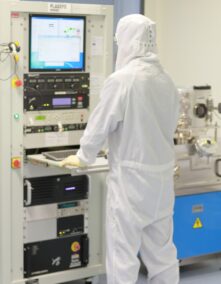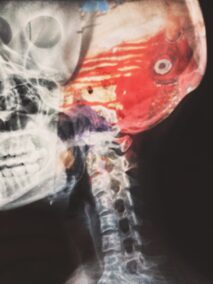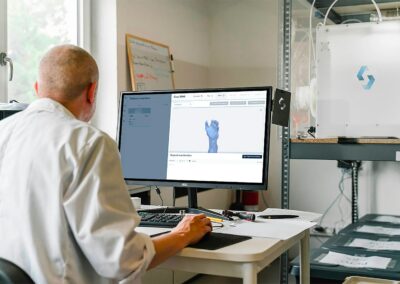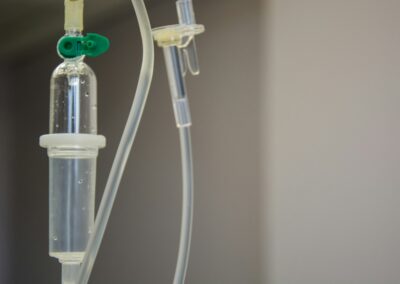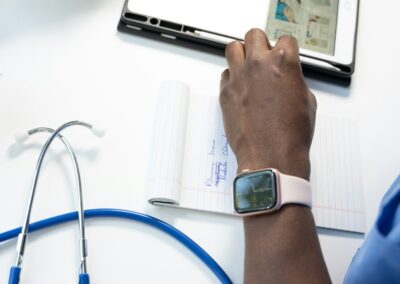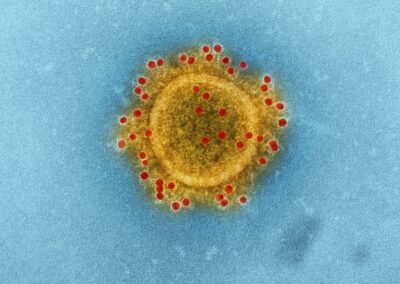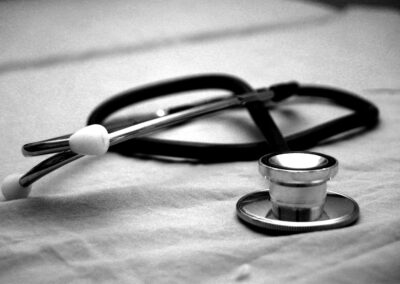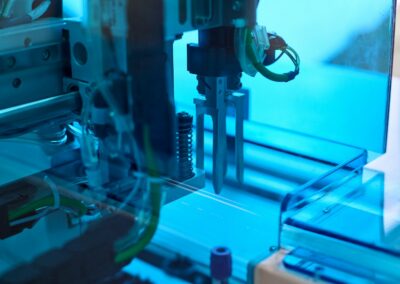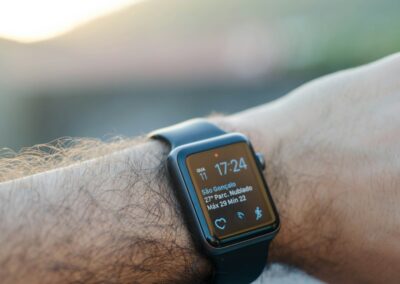Revolutionizing Healthcare through Advanced Technology
Enhancing Diagnostic Accuracy with Wearable Devices
The integration of wearable devices in medical diagnostics is transforming the healthcare landscape, offering unprecedented accuracy and efficiency in detecting and monitoring health conditions. These devices, equipped with advanced sensors and artificial intelligence (AI), provide continuous health monitoring, enabling early detection of potential issues and facilitating timely intervention. In regions like Saudi Arabia and the UAE, where healthcare innovation is a priority, the adoption of wearable technology is poised to enhance patient outcomes and streamline medical processes.
Wearable devices such as smartwatches, fitness trackers, and specialized medical wearables collect real-time data on vital signs, physical activity, and other health metrics. This continuous data stream allows for more accurate and comprehensive health assessments compared to traditional, intermittent methods. For instance, a patient in Riyadh with a history of heart disease can use a smartwatch to monitor their heart rate and detect irregularities, allowing for early intervention and potentially preventing severe complications.
Furthermore, AI-powered algorithms analyze the vast amounts of data collected by wearable devices, identifying patterns and anomalies that may indicate underlying health issues. This advanced analytical capability enhances the diagnostic process by providing healthcare professionals with detailed insights and actionable information. In progressive markets like Dubai, leveraging AI in wearable devices can lead to more accurate diagnoses and personalized treatment plans, improving overall healthcare quality.
Improving Efficiency in Medical Diagnostics
Wearable devices not only enhance diagnostic accuracy but also significantly improve the efficiency of medical diagnostics. Traditional diagnostic methods often require multiple visits to healthcare facilities, extensive testing, and prolonged waiting periods for results. Wearable devices streamline this process by providing continuous, real-time monitoring and immediate access to health data, reducing the need for frequent in-person visits and accelerating the diagnostic timeline.
For example, wearable glucose monitors for diabetic patients provide real-time blood sugar levels, allowing for immediate adjustments to diet or medication. This continuous monitoring eliminates the need for frequent finger-prick tests and provides more accurate and comprehensive data on blood sugar trends. In healthcare hubs like Riyadh, where managing chronic conditions is a significant focus, wearable devices can enhance the efficiency and effectiveness of patient care.
Moreover, wearable devices facilitate remote patient monitoring, enabling healthcare providers to track patient health from a distance and intervene when necessary. This capability is particularly valuable in managing chronic conditions and post-operative care, where regular monitoring is crucial. For instance, a patient recovering from surgery in Dubai can wear a device that monitors vital signs and alerts their healthcare provider to any concerning changes, allowing for timely intervention and reducing the risk of complications.
Challenges and Future Directions in Wearable Health Technology
Despite the significant benefits, the integration of wearable devices in medical diagnostics also presents challenges that need to be addressed. One of the primary challenges is ensuring the accuracy and reliability of the data collected by these devices. Wearable sensors must be highly sensitive and calibrated to provide precise measurements, and any inaccuracies can lead to misdiagnoses or inappropriate treatment. Ongoing research and development are essential to enhance sensor technology and ensure the reliability of wearable devices.
Another challenge is data security and privacy. Wearable devices collect vast amounts of personal health data, and protecting this data from breaches and unauthorized access is critical. Implementing robust data encryption, secure storage solutions, and stringent privacy policies is necessary to safeguard patient information. In regions like Saudi Arabia and the UAE, where data security is a top priority, addressing these concerns is crucial for the widespread adoption of wearable health technology.
The future of wearable health technology lies in further integration with advanced technologies such as blockchain and the Internet of Things (IoT). Blockchain can enhance data security and transparency, ensuring that health data is securely recorded and immutable. IoT connectivity can enable seamless communication between wearable devices and other medical systems, creating an integrated healthcare ecosystem. In innovative markets like Dubai, leveraging these technologies can drive the next wave of advancements in wearable health technology.
Implementing Wearable Devices in Healthcare Systems
Effective implementation of wearable devices in healthcare systems requires strategic planning, investment, and collaboration among stakeholders. Healthcare providers must invest in the necessary infrastructure and training to integrate wearable technology into their diagnostic processes. This includes educating healthcare professionals on the use of wearable devices, interpreting the data they provide, and incorporating this information into patient care plans. In regions like Saudi Arabia and the UAE, where healthcare excellence is a strategic priority, investing in wearable health technology can significantly enhance the quality of care.
Leadership and management play a critical role in driving the adoption of wearable devices in healthcare. Business executives and healthcare administrators must advocate for the benefits of wearable technology, highlighting its potential to improve diagnostic accuracy, efficiency, and patient outcomes. In progressive markets like Dubai, strong leadership and vision are essential for fostering innovation and driving the successful implementation of wearable health technology.
Collaboration between healthcare providers, technology companies, and regulatory bodies is also crucial for advancing wearable health technology. By working together, stakeholders can develop standards, best practices, and regulatory frameworks that ensure the effective and ethical use of wearable devices. In dynamic regions like Riyadh, fostering such collaboration can lead to significant advancements in healthcare technology and its applications.
Conclusion
In conclusion, wearable devices play a crucial role in improving the accuracy and efficiency of medical diagnostics, offering significant benefits in patient care and healthcare management. By providing continuous, real-time monitoring and leveraging advanced technologies such as AI, wearable devices enhance diagnostic accuracy and streamline the diagnostic process. For regions like Saudi Arabia and the UAE, embracing wearable health technology can drive innovation, improve patient outcomes, and enhance the overall quality of healthcare. Through strategic investment, collaboration, and a focus on data security and reliability, the promise of wearable devices in medical diagnostics can be fully realized, paving the way for a more advanced and efficient healthcare system.
—
#WearableDevices #MedicalDiagnostics #HealthcareTechnology #ArtificialIntelligence #ModernTechnology #BusinessSuccess #LeadershipSkills #ManagementSkills #ProjectManagement #SaudiArabia #UAE #Riyadh #Dubai


